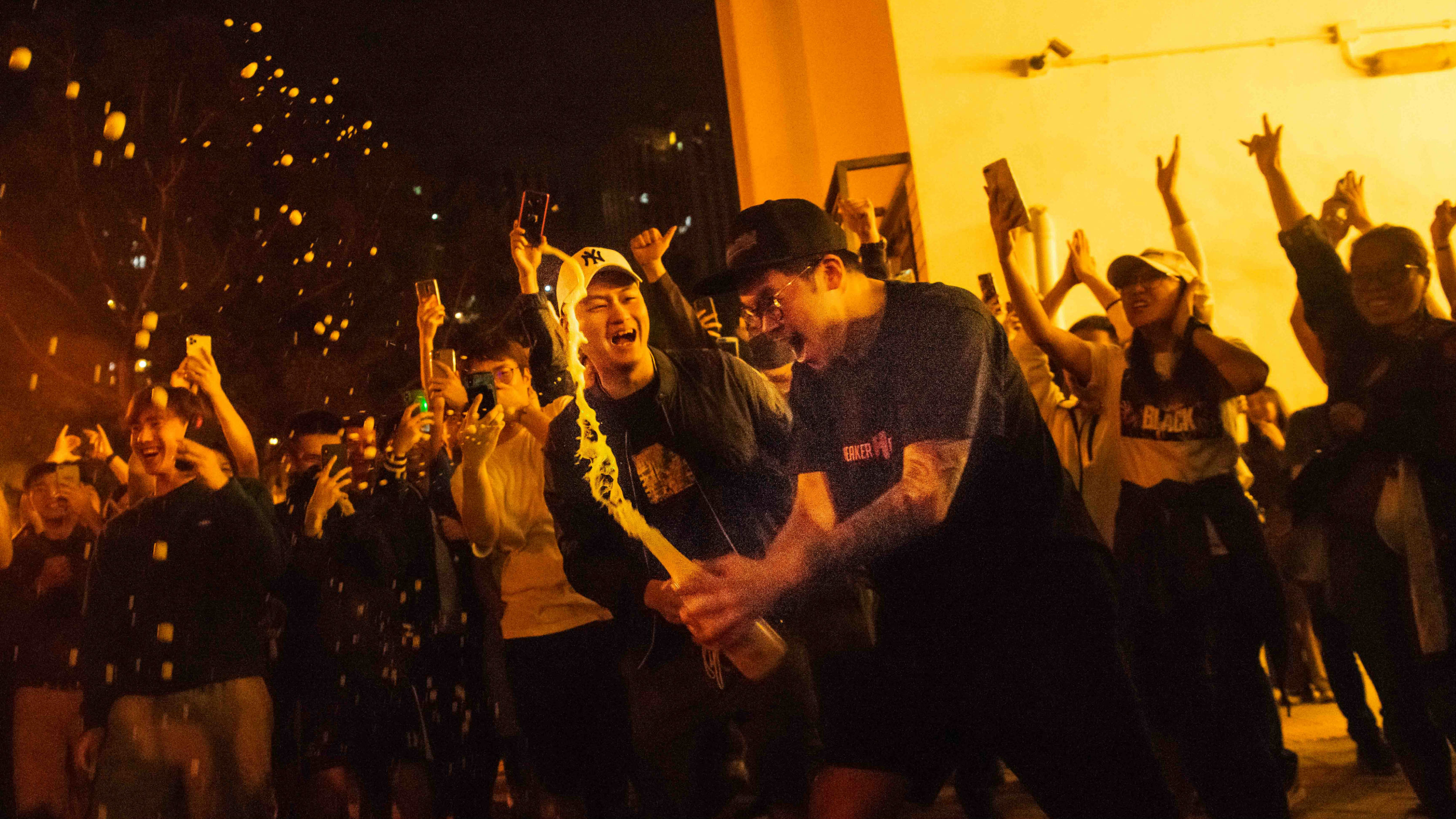Landslide victory for pro-democracy candidates as Hong Kong goes to the polls
Record numbers turn out in proxy referendum on six months of protest

A free daily email with the biggest news stories of the day – and the best features from TheWeek.com
You are now subscribed
Your newsletter sign-up was successful
Pro-democracy candidates in Hong Kong have scored a huge victory in district council elections, winning nearly 90% of the seats.
According to local broadcaster RTHK, pro-democracy candidates won around 390 of 452 seats, up from around 100 four years ago.
Turnout was a record 71% - equating to almost three million people - in what is being seen as a proxy referendum on Beijing’s rule after six months of protests. In 2015, turnout was 47%.
The Week
Escape your echo chamber. Get the facts behind the news, plus analysis from multiple perspectives.

Sign up for The Week's Free Newsletters
From our morning news briefing to a weekly Good News Newsletter, get the best of The Week delivered directly to your inbox.
From our morning news briefing to a weekly Good News Newsletter, get the best of The Week delivered directly to your inbox.
Politico reports that “anti-establishment reverberations from almost six months of street protests swept through polling stations”, with the “pro-Beijing camp left reeling by record turnout and landslide defeats”.
Speaking to The Guardian, retired political science professor at the City University of Hong Kong, Joseph Cheng, said: “This is a slap on the cheek for Carrie Lam’s administration who insisted that the silent majority was supporting the government.”
Despite the gains made by pro-democracy candidates, the Financial Times reports that “the election will not quell the violent protests unless the government responds to the movement’s demands”.
One winner, Henry Sin Ho-fai, today said: “We won a small battle today but it shows that Hong Kong people have a chance to win the war. We will fight on.”
A free daily email with the biggest news stories of the day – and the best features from TheWeek.com
–––––––––––––––––––––––––––––––For a round-up of the most important stories from around the world - and a concise, refreshing and balanced take on the week’s news agenda - try The Week magazine. Start your trial subscription today –––––––––––––––––––––––––––––––
While normally low-key affairs, pro-democracy campaigners seized on the elections as one of the few legitimate outlets to express dissatisfaction with the regime.
Hong Kong authorities had been hoping victory for pro-Beijing candidates would support the argument that a “silent majority” backs their hardline stance.
The importance of the elections in cementing the authorities' legitimacy in the eyes of the public had prompted fears of voter intimidation. However, the BBC reports that the election went ahead peacefully.
Protesters want universal suffrage for the city’s leader; an independent inquiry into alleged police brutality; an amnesty for those arrested; and for protesting not to be classified as rioting, an offence that carries up to 10 years jail in Hong Kong.
The result could ultimately impact Hong Kong’s long-term future, with district councils having a modest role in choosing the city’s chief executive, and members of its parliament.